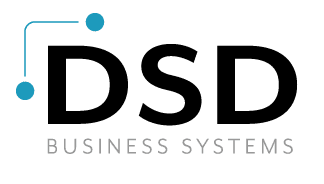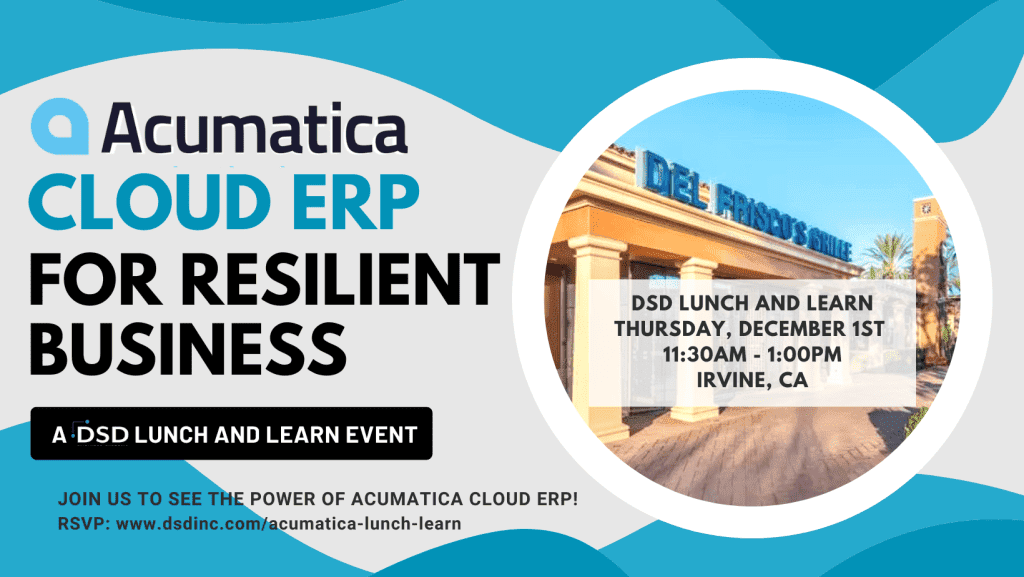ADDING CRM TO YOUR ERP SYSTEM
We’ve spoken previously about THE RELATIONSHIP BETWEEN YOUR CRM SOFTWARE AND YOUR ERP SYSTEM, but what if you haven’t yet integrated CRM into your existing ERP system? Let’s take a look.
All of the mid-market ERP systems on the market today have a native CRM system that is part of the software, or they are able to integrate with one or more third-party CRM products. The burning question is – Should you add CRM capabilities to your existing ERP system and if so, which product will do the best job for you?
There are virtually no enterprises these days, who have a significant number of customers, who don’t need and already use some form of Customer Relationship Management software. Popular entry-level packages include ACT!, SugarCRM, Zoho, Goldmine, and Highrise. If you are using one of these packages, you must ask yourself if it makes sense to integrate your CRM database with your ERP system.
Some of the reasons to do so are:
- You’re only maintaining one customer database.
- Customer contact history is directly available to your Accounts Receivable users.
- Customer purchase history is directly available to your CRM users.
- You can send out quotes and proposals directly from your CRM system, which were generated by your ERP software.
- And more.
There are two general kinds of CRM-to-ERP integrations: Real-time integrations and discrete synchronizations. Real-time integrations are just that. Any activity that occurs on the ERP side is immediately reflected in your CRM system, and vice-versa. A discrete synchronization means that an after-hours process must be run to put the two databases back into synchronization with each other. That means that if synchs are performed nightly, at the end of the day, your CRM staff could be looking at ERP information that is almost a day old. That may or may not be an issue for you, depending on the volume of your transaction activity. Sometimes it’s nice to know if the customer you’re talking to exceeded their credit limit earlier in the day.
Real-time integrations are certainly the way to go, so why do discrete synchronization integrations exist? The answer is that in order to build a real-time integration, a CRM publisher must have deep access to the ERP software’s internal workings. If the CRM publisher is not also the ERP publisher, then that access usually does not exist, and therefore a discrete synchronization approach must be used, taking advantage of the API or ODBC capabilities built into the ERP software.
So, let’s translate this into some recommendations. If you’d like to have a real-time CRM to ERP link with your Sage software, then you can only expect to get it if you are using Sage CRM. Yes, other CRM software such as SugarCRM or Salesforce.com will integrate, but only using a discrete synchronization approach. If you’re using any of the Microsoft ERP products, then Microsoft CRM will give you a real-time integration, but nothing else is likely to do so. If you’re using NetSuite, it has a native CRM capability that is excellent and is based on real-time integration.
In a nutshell, if you stay with the same publisher for both your ERP and your CRM functions, then you’ll have the highest level of real-time integration between the two databases. If your ERP publisher is not also your CRM publisher, then you can expect the integration between your two systems to be at a lower level of utility. So, look at your ERP publisher’s CRM software first. If it meets your functional requirements, then it will almost always be the best option. If it does not have the features that you need, then look at other CRM software, but pay close attention to the architecture of the integration, and find out from existing users if it’s reliable and gives you access to all the ERP data fields and functionality that you’ll need now and in the future.
About the Author
Doug Deane is President of DSD Business Systems, an international provider of on-demand (cloud) and on-premises ERP and CRM software, specializing in wholesale distribution, manufacturing, warehouse management, inventory, business intelligence, and eCommerce software. DSD offers NetSuite Cloud ERP, NetSuite CRM, NetSuite eCommerce, Sage 100 ERP (formerly MAS 90), Sage 300 ERP (formerly Accpac), Sage 500 ERP (formerly MAS 500), Sage FAS, Sage HRMS (formerly Abra), Sage CRM, Sage SalesLogix, Sage Add-Ons (Extended Solutions), and Custom Programming. DSD has been a multi-time Sage President’s Circle award winner, a two-time Sage Gold Development Partner of the Year recipient, has been recognized by the San Diego Better Business Bureau (BBB) as a Torch Award Finalist (2009) and Torch Award Winner (2010) for Marketplace Ethics, and has been recognized by the Council of Better Business Bureaus as a 2012 International BBB Torch Award Finalist for Marketplace Excellence.








